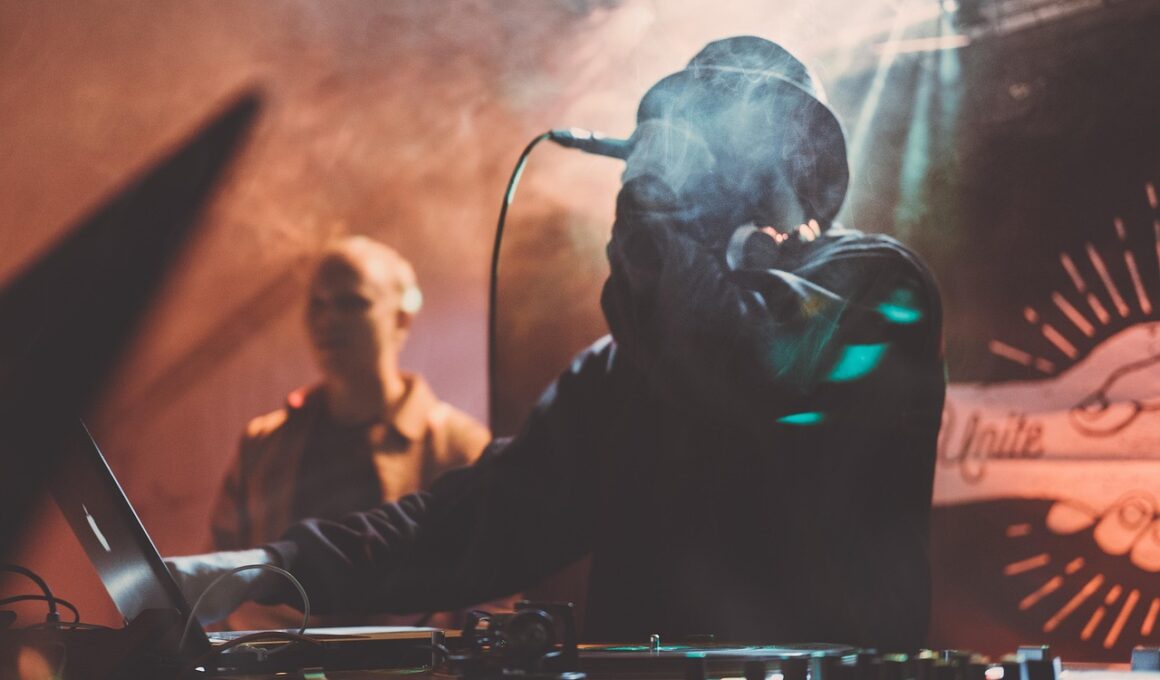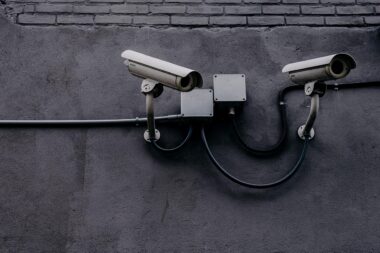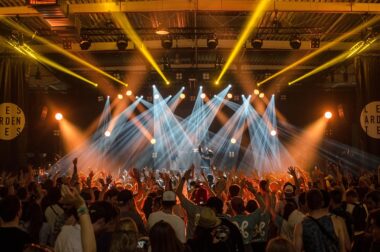Situational Awareness for Event Attendees: Staying Safe at Concerts and Festivals
Attending concerts and festivals can be exhilarating, but it’s crucial to stay aware of your surroundings. Understanding potential risks helps you to safeguard not only yourself but also your loved ones. Begin by observing the crowd and noting various elements that can enhance or hinder your experience. Pay attention to exits, security personnel, and other emergency resources. This awareness can provide you with escape routes in case of emergencies. If you notice anyone behaving unusually, such as being excessively intoxicated or confrontational, alert a staff member or security. Your situational awareness ensures you’re not merely a passive participant, which can greatly minimize risks. Keep your mobile phone charged and programmed with emergency contacts in case of any issues. Consider sharing your location with a trusted friend for extra safety. Furthermore, staying in groups can often discourage unwanted attention and ensure collective vigilance. Familiarize yourself with the layout of the venue upon arrival to bolster your confidence and readiness. Always remain vigilant, trust your instincts, and have a plan, ensuring that you’re prepared for any unforeseen situations that may arise during the event.
The Importance of Environmental Scanning
Environmental scanning involves continuously monitoring surroundings for potential threats or disturbances. It’s essential to remain alert to the behavior of people nearby while at concerts and festivals. Constantly take mental notes of individuals and groups acting strangely. Is someone too close for comfort? Are there aggressive conversations happening? Recognizing potential risks can help you react accordingly. Pay close attention to any security announcements or signals as they might indicate real-time issues that require your compliance. Being aware of your environment also means watching for exits and possible crowd control measures that may become necessary. Prioritize finding secure locations, like restrooms or first aid stations, in case you need them. Understanding these elements creates a mental map, allowing you to make informed decisions. Try to avoid distractions such as excessive mobile phone use unless necessary; this can make you an easier target for theft or unwanted advances. Observe how crowds respond to music, as it can signal when the atmosphere may shift. An intuitive connection to these situational cues makes it easier to remain alert, ensuring a safer experience amidst exciting energy.
In addition to environmental scanning, personal preparedness plays a significant role. It’s vital to plan ahead for safety by dressing appropriately for the event. Consider wearing comfortable shoes and clothing that allows for easy movement, as you may need to exit quickly if something goes wrong. Carrying minimal belongings reduces the chances of loss, while a small, secure bag helps keep essentials close. If you’re attending a music festival in a large open area, consider using eye-catching identification such as a brightly colored wristband. This can help you reunite or signal for assistance from friends. Having a buddy system in place—where you stay within sight of friends—strengthens group safety. Also, explore event guidelines regarding safety, especially regarding prohibited items like large bags or umbrellas. Educate yourself about weather conditions in advance to prepare accordingly, as unexpected changes can impact crowd behavior. These preparations go beyond the immediate need for safety; they foster a sense of security throughout the event, allowing you to enjoy performances fully. Make sure to communicate openly with your group about your safety plan, fostering a proactive environment.
Recognizing Warning Signs
A vital aspect of situational awareness is the ability to recognize warning signs. Understanding typical crowd dynamics can alert you when something is off. Watch for sudden changes in crowd behavior; for example, cheering may abruptly turn to panic. Likewise, observe if people start to scatter in one direction, as this might indicate a disturbance. Familiarizing yourself with local emergency protocols ensures you can react effectively if needed. Look for telltale signs of aggression, such as raised voices or confrontations among individuals. It’s essential to remain calm and not jump to conclusions. Equip yourself with skills that bolster your ability to analyze these behaviors and interpret them correctly. This includes observing body language or facial expressions of those around you, which can signal discomfort or hesitation. Stay connected with event-goers around you, as they might share their observations too, increasing collective awareness. If you feel uncomfortable or threatened, consider moving towards more populated areas or security officials. Remember that proactive instincts are vital in these scenarios; the quicker you can assess a situation, the better equipped you’ll be to handle it.
In addition to recognizing warning signs, developing strong communication skills is integral to enhancing your situational awareness. Whether it’s conveying instructions, alerting friends about an uncomfortable situation, or signaling for help, clarity in communication is essential. When in large crowds, loud music, and chaos can drown out voices, consider using nonverbal cues or signals to get your point across quickly. For instance, create a simple hand signal system with your friends to indicate that someone needs help or that you’re ready to leave. Sharing this system before arriving can be effective in ensuring everyone understands how to communicate efficiently. Additionally, take advantage of technology, such as text messaging, to reach friends discreetly. Always maintain your phone’s battery life to ensure you can stay in touch when needed. Utilize any available event apps that may provide real-time updates on safety or crowd movements, as this extends your situational awareness. Using effective communication not only assists in personal security but can also make you a responsible attendee, looking out for the safety of those around you.
Avoiding Distractions
As exhilarating as concerts and festivals can be, distractions are rampant. While capturing memorable moments through selfies or videos may tempt you, constantly focusing on your phone detracts from your situational awareness. The act of recording may keep you entertained but inhibits your ability to stay alert to your surroundings. If you find yourself engrossed in your device, practice mindful breaks where you take a moment to reflect on the ambiance and environment. Put your phone away during critical moments to observe potential shifts in the crowd or surroundings. Additionally, be wary of alcohol consumption, as excessive drinking can impair judgment significantly. Being sober and aware enables you to read situations better and act responsibly. If you notice friends becoming overly intoxicated, encourage them to stay hydrated or find a safe space to relax. Your personal well-being also relies on your ability to assess the environment actively, guiding the group towards safety. Create a balance between experiencing the vibe and staying vigilant, as this ensures you capture memories without compromising safety.
To conclude, practicing situational awareness during concerts and festivals enhances not only your safety but also your overall event experience. By implementing these techniques, you empower yourself to navigate any uncertainties with confidence. Start with environmental scanning and continuously monitor behavior around you. Prepare for emergencies by knowing exit locations and having a safety plan in place. Recognize warning signs and communicate effectively with your group to foster a collaborative safety environment. Avoid distractions that can lead to vulnerability, and encourage your peers to prioritize awareness. Remember, staying present enables you to enjoy the energy of the event while still minding personal security. These methods can not only protect you and your friends but will also help you create unforgettable memories for the right reasons, allowing everyone to enjoy the exhilarating atmosphere responsibly. It is not only about having fun; it is about being smart while having fun. Keep safety at the forefront of your mind, integrating these tips into your routine whenever you attend events. Your safety matters, and being proactively aware can enrich your experience beyond just astonishing performances.
Situational Awareness Exercise Summary
In this article, I’ve outlined strategies to develop situational awareness for events. Awareness of surroundings creates a safer experience at concerts and festivals, benefiting you and fellow attendees. Implement the exercises discussed and use your knowledge to stay safe. Planning, communication, and awareness can significantly enhance your ability to perceive threats while enjoying the atmosphere. Always be prepared and willing to identify changes around you. Maintain a balance between enjoying the moment and remaining alert. Engaging in these techniques helps foster a responsible approach toward safety while still enjoying live entertainment. Encourage others to adopt similar strategies to cultivate a culture of awareness within your social circles. Research local events beforehand to get familiarized with venues and safety measures. Also, practice situational awareness in everyday life, as the skills learned extend beyond entertainment settings. Every time you engage in public gatherings, apply these lessons to ensure safety remains a priority. Remember that your enjoyment should coincide with responsibility. Arm yourself with knowledge, share it, and encourage a community of vigilance, creating a safer environment for all.





